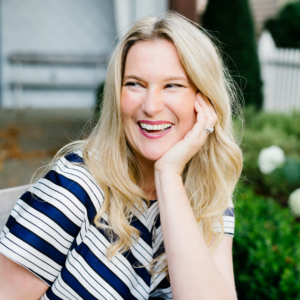Remember Chadwick Boseman by Getting Screened for Colon Cancer
Chadwick Boseman, you are a man of great talent and inspiration to so many. You will be missed.

“Mom, did you know Chadwick Boseman just died?” My daughter called out to me from the living room on Friday evening. I was in my room, and I was walking out to tell her the same news. I think the whole world found out at the exact moment, and all of us have been grieving on social media ever since.
Today, August 31, marks the 23rd anniversary of Princess Diana’s death, another public figure who did so much good in the world. I remember the exact place I was sitting in Muncie, Indiana when I heard the news.
Why is it that some people’s passing is so much more difficult than others? The short answer is that young death feels wrong because it feels like that person has been cheated out of many productive and beautiful years.
I find it both courageous and heartbreaking that Boseman kept his illness private. He was diagnosed with stage III colon cancer in 2016, so this means he continued filming, conducting interviews and attending events and charities for four years without telling anyone. Let’s talk in terms of movies. Captain America: Civil War debuted in 2016, so he filmed Black Panther, Avengers: Infinity War, Avengers: Endgame, Marshall, 21 Bridges and Da 5 Bloods while he was sick. I think his role as Thurgood Marshall is especially impressive because he had surgery and chemotherapy treatment during the filming (Looper).
I understand why celebrities like Chadwick Boseman and Kelly Preston, who passed away July 12, would choose not to disclose their illness. Celebrities have little privacy as it is, and dealing with a serious condition in the public eye sounds unbearable.
But what can’t be kept secret is that colon cancer and breast cancer (which took Kelly Preston’s life) can affect a healthy person at a young age.
Why is Colon Cancer so Taboo?
Colon cancer has another layer of complication because it can involve health problems like polyps and bowel obstructions, which can be embarrassing to talk about. Let’s get even more personal. Colon cancer can cause symptoms like diarrhea, constipation and rectal bleeding, none of which people like to talk about.
But we need to talk about it.
Lives depend on our talking about it.
Colon cancer is the second-leading type of cancer in the United States and the third-leading cause of cancer death among men and women. This year, the American Society of Clinical Oncology estimates 147,950 Americans will be diagnosed with colorectal cancer (104,610 new cases of colon cancer and 43,340 new cases of rectal cancer).
You or someone you love could be part of those numbers. And when a number becomes a person, it becomes very, very personal.
Can I share with you ten quick facts about colon cancer from Stop Colon Cancer Now? It’s a website dedicated to colon cancer prevention and I write for their blog, the Butt Seriously Blog every month (yes, that’s really what it’s called).
>h2> Ten Facts About Colon Cancer
- Every adult should get tested for colon cancer beginning at age 45 (or age 40 if you are African American).
- Your lifetime risk for developing colon cancer is 1 in 20 or five percent.
- Colonoscopy is the best test to detect and prevent colon cancer.
- Precancerous polyps can be removed during a colonoscopy so they do not develop into cancer. Will Smith recently had precancerous polyps removed and he shared the experience on YouTube. Watch it here.
- If you get a clean bill of health after your colonoscopy, you likely won’t have to have another exam for 10 years.
- Colon cancer often has no symptoms in the early stages.
- Young-onset colon cancer tends to be more aggressive and more likely to be fatal.
- Colon cancer is over 90% treatable when detected in early stages.
- You’re never too young for colon cancer. It can affect people in their 30s and even 20s.
- Colon cancer incidence among people under 50 has been steadily rising over the last decade. We can’t view colon cancer as a disease for the elderly.
How You Can Prevent Colon Cancer
So, what should you do with these facts? It’s easy.
Talk to your primary care physician and ask when you should get screened. Everyone has a different colon cancer screening age. Risk factors like polyps, inflammatory bowel disease, radiation therapy, diabetes, alcohol use, smoking or obesity could affect your recommended screening age.
If colon cancer runs in your family, talk to your doctor at your next appointment about when you should get a colonoscopy. If you have a first-degree relative who had colon cancer, ignore all the recommendations from the American Cancer Society. You should get screened TEN YEARS before the age that relative was diagnosed. Knowledge is power, my friends.
Finally, familiarize yourself with the symptoms of colon cancer. As I said, colon cancer often has no symptoms but when symptoms are present, they can include:
- Abdominal pain
- Vomiting
- Changes in stool habits
- Blood in the stool
- Unexplained weight loss
- Anemia and fatigue
It is such a tragedy that we lost Chadwick Boseman so soon, but we can honor his memory by taking action for ourselves and our loved ones. Please get a colonoscopy if you are due for a colon cancer screening, or encourage a family member or loved one to schedule an exam.
You could also go one step further. Offer to drive someone to and from their colonoscopy. Most patients will undergo general anesthesia for a colonoscopy, which means they can’t drive themselves home and they need a driver and caregiver. A lack of transportation is one of the most common reasons people don’t get screened.
Next year, I turn 45. I don’t know what 2021 will bring, but I know that I’ll be spending four hours in an outpatient GI center getting a colonoscopy sometime in June. Even if my insurance doesn’t cover the exam, I’ll gladly pay for it because a colonoscopy is less expensive than colon cancer.
How to Find a GI Center and a Gastroenterologist
Click here to find a GI center near you. I even wrote an article about how to choose a qualified gastroenterologist.
How else can I help? Please comment below if you recently had a colonoscopy or a colon cancer screening. Or, share some encouragement for someone who might need that extra nudge of courage to get screened. Thank you, friends! I always love hearing from you and I appreciate your words so much.
Photo Credit: Legacy


